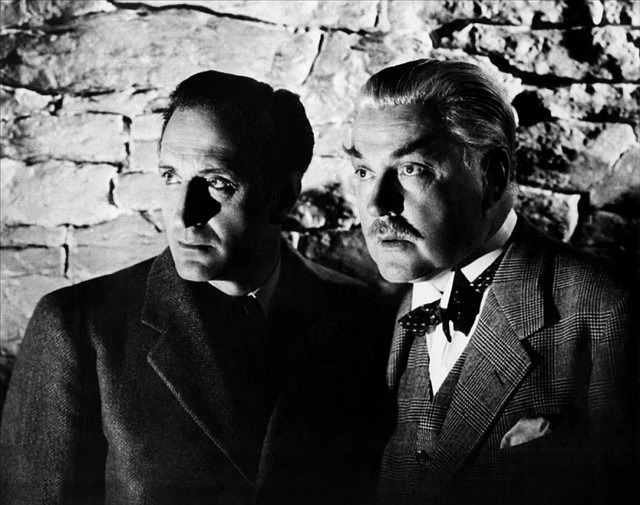CRAMMERS' GUIDE - 5 Shots of Context for Romeo and Juliet
1. Tragedy
Tragedy is a form of drama derived from the theatre of ancient Greece. In Shakespeare's time, tragedy was considered the highest form of drama. Romeo and Juliet signifies a moment of transition in Shakespeare's career, and it reflects the changing public mood as Queen Elizabeth entered the final years of her reign.
In earlier years, when the Queen's hold on power was secure and the country enjoyed a period of relative peace and prosperity, Shakespeare wrote History plays and Comedies. And in the uncertain beginnings of James I's reign, he wrote more tragedies, starting with Macbeth.
It is perhaps for this reason that we see elements if both comedy and tragedy in Romeo and Juliet, with comedic conventions dominating the first half of the play. In fact, until the death of Mercutio in Act 3, the play could easily be classed as a comedy rather than a tragedy.
Shakespeare had been classically educated in Stratford and he would have been very familiar with the rules and conventions of Greek tragedy. The mist famous theorist on the topic was Aristotle who proposed a number of rules and conventions that make for a successful tragedy. I have detailed some of these below, with how they might apply to Romeo and Juliet.
Harmartia - Aritostle argues that a tragic hero should not be especially good or especially bad but that the protagonist's downfall should come about as a result of some frailty or harmartia, sometimes called a tragic flaw. In Romeo and Juliet it is not clear what Romeo's harmartia is. Some argue that it is his impetuousness. Others argue that he does not have a harmatia in the tradional sense, but that the misuse of power by others acts as a harmartia. Or we could argue that Romeo's romantic arrogance leads to his choice to marry Juliet in secret, and that this, therefore must be his harmartia.
Peripeteia - A perpeteia is a moment of reversal in a the plot of a tragedy, after which the story rumbles on to it's inevitable, unhappy conclusion. In Romeo and Juliet the death of Mercutio marks perepeteia. "A plague a' both your houses!" signals a curse on the two families and suggests that it is the misuse of power that acts as the destructive force in the play.
Anagnorisis - The anagnorisis is the moment of self knowledge, the recogntion of what has led to the hero's inevitable demiste. It's not at all clear where this is in Romeo and Juliet, but it could be the apothecary scene. Romeo tells the apothecary: "I sell thee poison; thou hast sold me none". This seems a bit odd and out of character for Romeo, but if it is intended as an anagnorisis, it could mark the point where Romeo realises that the protection of power and wealth that leads the Montagues and Capulets to feud, is what is now leading him to his own death.
Catharsis - Aristotle areged that a tragedy should incite pity and fear in its audience and that leads to a purifying end. We see this Romeo and Juliet when Montague and Capulet decide to make peace, following the deaths of Romeo and Juliet. However the "glooming peace" at the end of play suggests that the catharsis is fragile and may be short-lived.
2. Arthur Brooke
Shakespeare took the story of Romeo and Juliet from a narrative poem called 'The Tragicall History of Romeus and Juliet' which was published by Arthur Brooke in 1562. It is thought that Brooke in turn took the story from an Italian novella by Matteo Bandello, or possibly from a French translation of that story.
We don't know much about about Arthur Brooke. We know he was a lawyer, and we know that he drowned in 1563 on his way to France to fight for the Protestants in the French Wars of Religion.
Shakespeare did make some changes to the story, particularly at the end. In Brooke's story the nurse is banished for her role in supporting Juliet in her deception, and the apothecary is hanged! As well as this, Friar Lawrence has to leave Verona to see out his days in a hermitage.
In an exam it is worth mentioning this if there is a question about the nurse or the Friar, or about the ending of the play.
3. Marriage
In Shakespeare's time, attitudes towards marriage were changing. In the past marriage had largely been a matter of family connections, where marriages would be organised for political and financial reasons. We see this in Romeo and Juliet in the proposed marriage of Juliet to Paris.
But Shakespeare's play fit with the fashion of the time for presenting couples marrying for love, often against the wishes of their families. It may be that one of the reasons that Shakespeare makes Juliet so young, is that he wants to show that he disapproves of the old fashioned way of doing things.
It is definitely immportant that Juliet is so young. Most of Shakespeare's audience would have been apprenticed as teenagers and so did not marry until they were in their twenties. The teenage love we see in Romeo and Juliet would for the most part be limited to the noble classes, and the love of poetry.
So although things were changing in one sense, in others they remained the same, particularly the rights of women. Women were expected to keep themselves sexually pure, and not to betray her husband with other men. And while a woman could inherit and control property, and many women (more usually older women) did. A woman was expected to bring money with her into any marriage, and a property owning woman without family would be in a vulnerable position.
Finally for a marriage to take place it would be necessary for the parents of couple to agree to the match. This is why the Friar's action in marrying Romeo and Juliet is illeagal, despite his honourable intentions.
4. The Sonnet
A sonnet is a fourteen line poem, written in iambic pentameter and following a strict rhyme scheme. They are poems most commonly associated with themes of love.
The sonnet was popularised by and Italian poet called Petrarch who wrote over 300 sonnets addressed to a woman called Laura in a series called the Canzoniere.
Shakespeare uses the sonnet to set out the premise of the story in the prologue, and to summarise the action at the beginning of act 2, though it is not clear why he does not do this in the following acts.
More importantly, when Romeo and Juliet meet in Act 1 Scene 5 they speak inn a shared sonnet, and that sonnet ends dramatically in their kiss, marking Romeo and Juliet as idealised lovers.
5. Patriarchy
Shakespeare's England was a patriarchal society in which it was accepted that men should rule the family, the Kingdom and everything under God, who of course is also presented as the father.
So in the play, Capulet and Montague are rulers of their own families, and they in turn are ruled by Prince Escales. While relationships between fathers and sons could be quite distant, boys were expected to put the interests of the family above all things and to protect its status and power. And while Tybalt is not Capulet's son, we can certainly see him in that way, and his death in act three limits Capulet's options, and limits his ability to exercise his power and protect his status.
A woman's role was also to protect the power and the status of the family, but through obedience and chastity. Through demonstrating 'womanly' virtues a daughter would make herself a more desirable bride and consequently would allow the patriarch (Lord Capulet in this case) to get the best possible marriage for his daughter and ensure the family's status in the future.
In the play, Lord Capulet at first holds off the enthusiastic Paris, but later, when Tybalt is gone, seeks to push the marriage through as quickly as possible. In both cases his treatment of his daughter is motivated by political self-interest rather than a desire to protect his daughter's happiness.
Modern audiences are appalled at Capulet's rage and his threats of vilence against his daughter fot her refusal to marry Paris, but many in Shakespeare's audience may have felt that Romeo and Juliet bring their doom upon themselves for failing to respect the patriarchy.





0 Comments